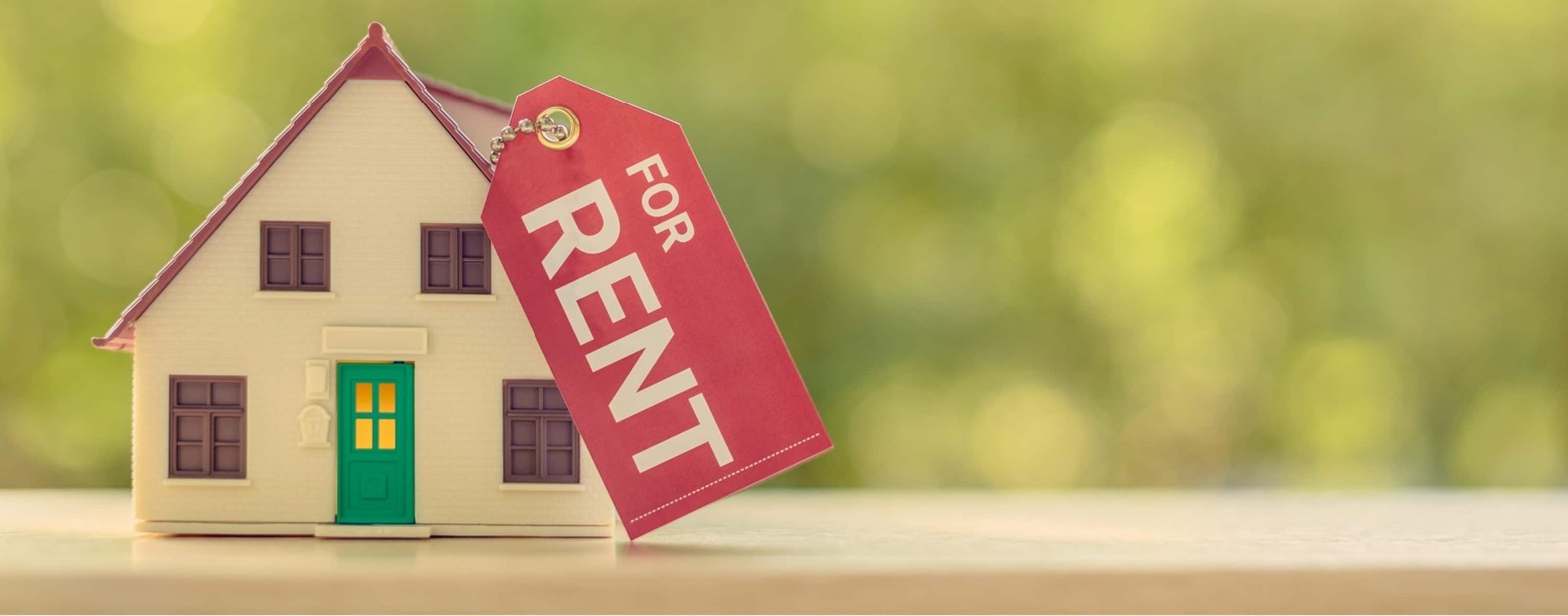Landlord Tax Guide: What are allowable expenses?
Posted on 17th October 2021 at 22:40
We have summarised in this short guide a list of common expenses that you can claim through your investment property limited company. The general rule is that you can claim all expenses incurred wholly and exclusively for purpose of the rental property business.
The below expenses are known as ‘revenue expenditure’, and are allowable costs against the profits from the rental business. These are the day-to-day costs of the rental business.
Revenue Expenditures
1. Mortgage Interest and other finance costs
The mortgage interest accrued during the accounting year is an allowable deduction against the rental income. Please note that mortgage interest and other finance costs are only allowable through a limited company.
Individuals that receive rental income on residential property will no longer be able to deduct their finance costs from their property income to arrive at their property profits. They will instead receive a basic rate reduction from their income tax liability for their finance costs via Self Assessment.
2. Advertising expenses
Advertising for new tenants are an allowable expense. For example, the cost of placing adverts in newspapers.
The expense of advertising a property to buy or sell is a capital expenditure and therefore it cannot be deducted from your rental income when you work out your taxable rental profit.
3. Legal and professional fees
Expenditure on professional fees of a revenue nature is deductible if they are incurred for the purposes of the rental business. This may include:
• costs of obtaining a valuation for insurance purposes
• accountancy expenses incurred in preparing rental business accounts and agreeing taxation liabilities (see below).
• subscriptions to associations representing the interests of landlords
• the cost of evicting an unsatisfactory tenant in order to re-let the property.
4. Accountancy and Taxation fees
Fees incurred on preparing accounts for commercial reasons will meet the ‘wholly and exclusively’ test. Hence the cost can be deducted in computing rental business profits.
This practice does not extend to fees incurred as a result of an enquiry by HMRC into the tax return if there is an amendment resulting from careless or deliberate behaviour. Neither does it extend to other personal fees; for example, fees incurred on preparing a tax return or working out CGT due.
5. Letting agents’ fees
Expenditure incurred for the fees paid to letting agents for managing the property are an allowable deduction.
6. Repairs and maintenance
Repairs means the restoration of the property to its original condition. To be allowable, there cannot be a significant improvement of the property such that the improvement is beyond the original condition. Replacing a part of the property with the nearest modern equivalent is still a repair if the improvement is incidental to the repair, such as replacing a single-glazed window with a double-glazed window.
Examples of common repairs that are normally deductible in computing rental business profits include:
• cleaning and gardening costs
• fixing heating and electrical issues
• damp and rot treatment
• mending broken windows, doors, furniture and machines such as cookers or lifts,
• replacing roof slates, flashing and gutters
• redecoration between tenants to restore the property to its original condition
• replacing roof tiles blown off by a storm
• replacing a broken-down boiler.
If you have an insurance policy that covers the cost of some repairs to your property, you can only claim the additional expenses that you incurred for repairs which the insurance pay-out did not cover.
Work commissioned on a property may include expenditure on capital works and also separate expenditure on repairs at the same time. Here the expenditure on repairs remains allowable. Expenditure may be apportioned on a reasonable basis to estimate the amount attributable to the repair element but it must be done fairly and the figures will be open to review.
7. Restoration costs
You cannot claim any costs that you incur to bring a property up to habitable standard before you make it available for rental. That includes the purchase cost, as well as any costs for repair or other building work. In addition, any work that improves the property or adds value is not allowable as an expense.
A property acquired that wasn’t in a fit state for use in the business until the repairs had been carried out or that couldn’t continue to be let without repairs being made shortly after acquisition.
The price paid for the property was substantially reduced because of its dilapidated state. A deduction isn’t denied where the purchase price merely reflects the reduced value of the asset due to normal wear and tear (for example, between normal exterior painting cycles). This is so even if the customer makes the repairs just after they acquire the asset.
8. Salaries and wages of employees
Salaries and wages that a landlord pays to employees engaged full time or part time on managing the land or property within their rental business are allowable. This includes any normal pension contributions they may pay for their employees.
9. Insurance
Premiums on insurance policies covering the risks listed below will be allowable if paid for the purposes of the rental business.
• the risk of damage to the fabric of the property,
• the risk of damage to the contents,
• loss of rents,
• allowable deductions will include premiums in respect of properties that are held for letting but vacant for the time being, as well as properties that are let.
10. Travel costs
The travel costs in relation to the let property provided that are incurred wholly and exclusively for the rental business are allowable expenses.
It would be essential for the allowable travel costs to hold evidence such as appointment confirmations by the estate agents addressed to your company and maintain a mileage log.
11. Replacement of domestic items relief
This legislation applies to expenditure incurred on or after 6 April 2016. It allows a deduction for the replacement (not initial purchase) of certain domestic items.
What is a domestic item?A domestic item is an item for domestic use such as:
• Moveable furniture (sofas, tables, bed frames etc)
• Furnishings (curtains, rugs, carpets etc)
• Household appliances (fridges, freezers, washing machines etc)
• Kitchenware (utensils, crockery, cutlery etc)
If the new item is of broadly the same quality as the old item and doesn’t represent an improvement then the deduction is the cost of the new item. Note that for these purposes, just because an item is brand new does not make it an improvement over an item which has been in use for several years and suffered general wear and tear.
However, where the new item is not substantially of the same quality as the old item, the deduction is equal to the lower of:
• the cost of the new item, or
• the cost that would have been incurred if the old item has been replaced like-for like.
If incidental capital expenditure is incurred in connection with the disposal of the old item or the purchase of the new item, the deduction is increased by the amount of that incidental expenditure. An example of incidental capital expenditure might be: the costs of delivery of an oven, the cost of installation of that oven, and the cost of disposing of the old oven.
However, fixtures are not domestic items and do not qualify for ‘Replacement of Domestic Items Relief’. Fixtures are:
Examples of fixtures:
• Baths
• Washbasins
• Toilets
• fitted furniture that has become part of the dwelling-house (e.g. built in wardrobe and cupboards)
As these items are fixtures of the building, the cost of replacing these may be an allowable expense as a repair to the building. However, expenditure will not be on repairs if an ‘entirety’ is replaced. The cost of replacing the whole or the ‘entirety’ of an asset is not a repair; it is capital expenditure and not an allowable expense.
12. Telephone costs
Telephone calls made (or text messages sent) in connection with the rental property are an allowable cost.
13. Other Types of expenses you can deduct if you pay for them from the business:
• water rates, council tax, gas and electricity
• rents (if you’re sub-letting), ground rents and service charges
• stationery
• vehicle running costs (only the proportion used for your rental business) including mileage rate deductions for business motoring costs
• home office - you may claim the additional costs such as additional heating and lighting cost you incur that you would not incur if you did not work from home. If you work from home between 25 and 50 hours per month, the allowance is £10 per month, unless you can produce evidence of higher additional cost.
14. Expenses you cannot claim a deduction for include:
• the full amount of your mortgage payment - only the interest element of your mortgage payment can be offset against your income
• private telephone calls - you can only claim for the cost of calls relating to your property rental business
• clothing - for example if you bought a suit to wear to a meeting relating to your property rental business, you cannot claim for the cost as wearing the suit is partly for your rental business and partly to keep you warm - no identifiable part is for your property rental business
• personal expenses - you cannot claim for any expense that was not incurred solely for your property rental business.
Capital Expenditures
The below expenses are known as ‘capital expenditure’, and are not allowable costs against the profits from the rental business. However, these can be allowable costs when computing the gains/losses on the disposal of properties. Capital expenditure are the costs directly attributable to the purchase of the properties and costs incurred in enhancing the property beyond its original condition which results in an increase in the value of the property.
1. Expenditure: incidental costs of acquisition and disposal
You can deduct costs of buying, selling or improving your property from your gain. These include:
• estate agents’ and solicitors’ fees
• costs of improvement works, for example for an extension where normal maintenance costs, such as decorating, do not count see below)
• survey cost
• costs of transfer or conveyance (including Stamp Duty or stamp duty land tax)
• costs of advertising to find a buyer or seller
• legal adviser - the expenditure must have been incurred wholly and exclusively for the purposes of the acquisition or disposal.
• costs reasonably incurred in making any valuation or apportionment required for the purposes of the Capital Gains Tax computation.
2. Extensive alterations to a property
Alterations to a building may be so extensive as to amount to the reconstruction of the property. This includes costs incurred for extensions made to the property. Examples include:
• garages
• loft conversions.
3. Accountant’s fees
Accountant’s fees are allowable only to the extent that they relate to the ascertainment of market value of the assets or to any apportionment for the purposes of the computation. Otherwise, fees for the computation of liability are not allowable.
If you have Capital Gains Tax to pay, you must report and pay any Capital Gains Tax on most sales of UK property within 30 days. You can read our Guidance in this link here.
Chart Accountancy can help.
Taxation for landlords can be complex. If you need help or advice on any aspects of tax, please get in touch with us today to find out how we can help you with your lettings business accounts.

Tagged as: Landlord Expenses, Landlord Tax
Share this post:



